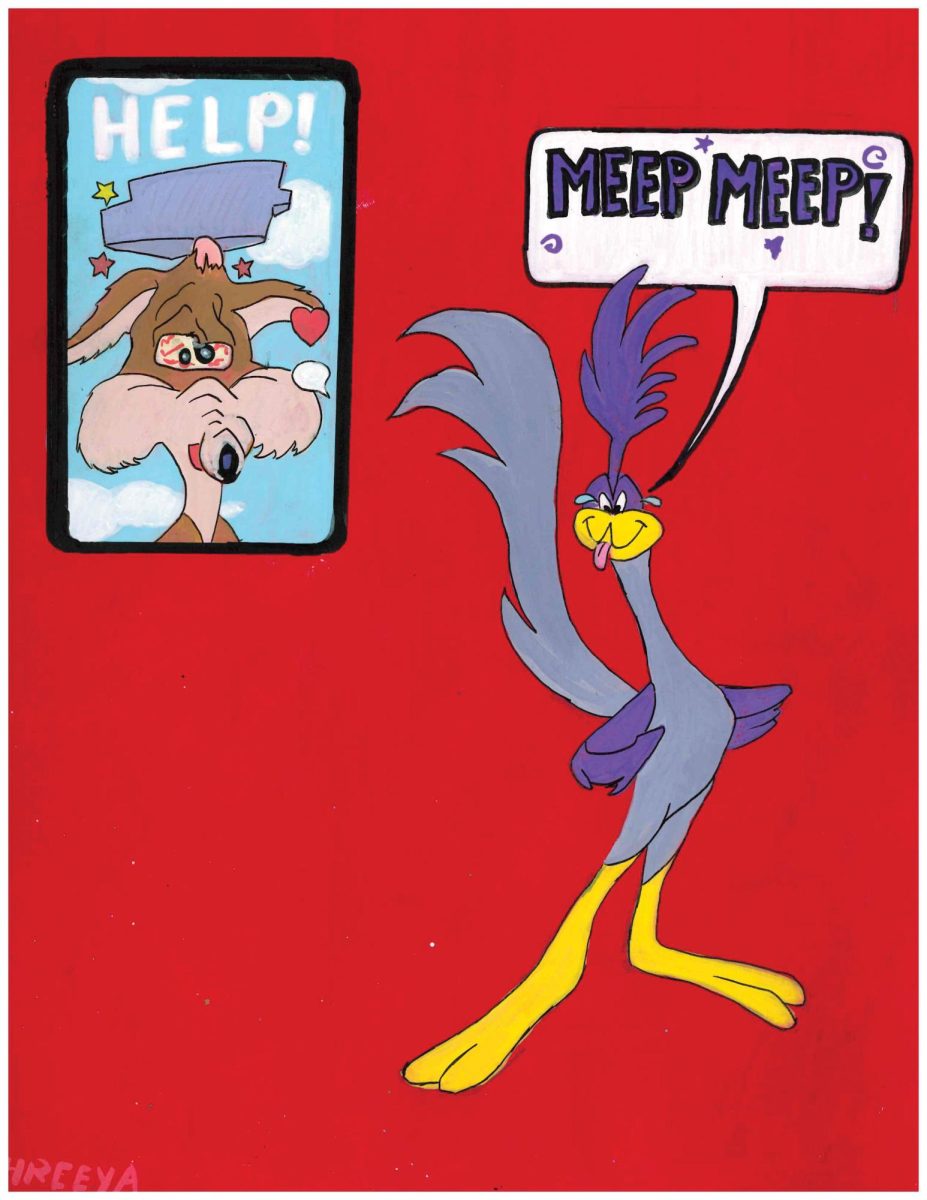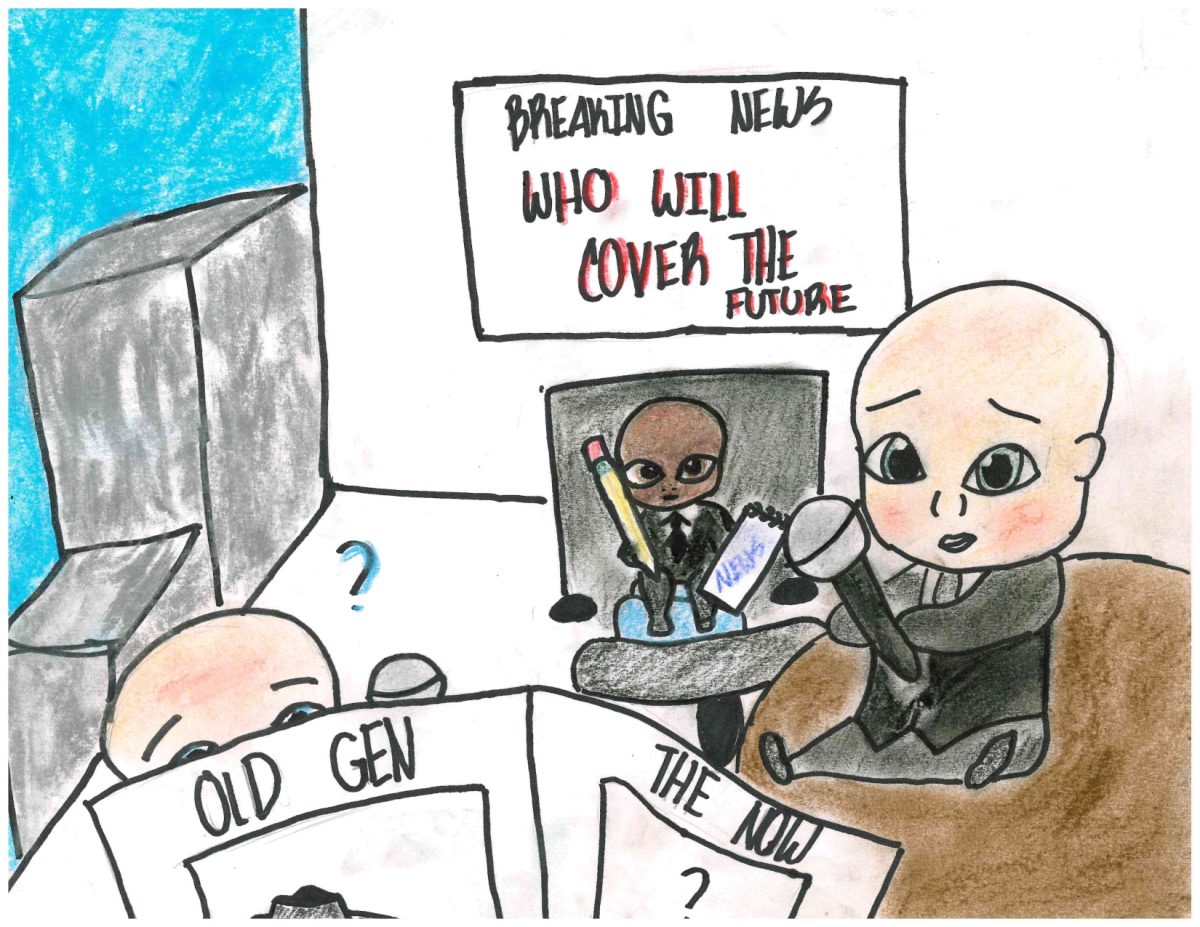With an uprising vocality amongst Generation Z (Gen Z), society has begun implementing and promoting more inclusive mindsets and placing more emphasis on the value of empathy.
Known as the “open-minded” and “pragmatic” generation, Gen Z has influenced a wave of empathy and inclusivity, especially when it comes to those struggling with society-based adversity, whether through gender roles, stereotypes or other social hindrances.
However, we see many instances within our everyday lives where Gen Z is presented in a negative light.
Compared to other generations, Gen Z is more questioning of authority, sometimes in ways that can seem disrespectful.
Talking back to older folks has been considered something that is wrongful for many decades, even centuries, which is why it is so startling to see the youth changing this societal habit.
While it is important to respect your parents and teachers, there is also value to be found in this type of interrogation.
For instance, standing up to those who do not speak kindly, regardless if they are elderly or not, is an important skill to have when going through life.
While this may seem like a touchy subject to previous generations, our world is changing, and so is our youth.
The level of empathy that Gen Z presents towards “taboo” issues is more than any other generation, and we have seen this growth in the last decade particularly.
While many things have been deemed as “taboo” over the decades, mental illness is one thing that Gen Z is trying to release from that stigma.
According to Howard Magazine, one in five adults experiences mental illness in the U.S., which ultimately leaves room for the promotion of respectful resolutions to these issues (more so than we have in the past).
As personal narratives are beginning to be more public and normalized in society, there is a more positive shift in the discussion of mental wellness and what it means for so many people.
This transfer in generational conversation is not only sparked by Gen Z itself, but by current events that force people to evaluate their lifestyles and way of thinking.
According to Howard Magazine, tragedies such as the pandemic, ongoing racial trauma and continuous fights for social justice have “propelled mental health to the forefront.”
By normalizing the questioning of societal “norms” within the past 50 years, there is more room for individual growth and open-mindedness amongst older generations. Although it has been proven by the National Institutes of Health that open-mindedness decreases with age, Gen Z is doing a great job of leaving individual expression of opinion to each person, not society as a whole.
Being the most diverse generation, Gen Z strives to express individuality and acceptance, especially in the lines of race and sexuality. Through promoting the normalization of typically marginalized groups of people, older generations are rather forced to live among the people that were once shutout in their lifetime.
Enforced change such as this promotes the opportunity for more levels of equality and harmony between all groups of people.
However, it is also known that this change also leaves room for hatred and division.
It is important to address that the adversity and resentment are still relevant among historically oppressed groups, but it is just as important to emphasize the drastic and continuous growth that each of these groups have experienced, thanks to younger generations promoting equality.
The traction that inclusivity and the deconstruction of stereotypes and social constructs has gained over the past decade is a great starting point for our society, but is merely a step in the right direction.
Gen Z has pushed to destigmatize many topics that were once taboo, whether it is mental health, gender roles or the need for therapy. However, there is still a lot of work to be done. A lot of topics are still stigmatized or taboo for our society.
While there has been some progress with society’s view on addiction, there is still a lot of work to be done. People tend to see addicts as a small minority that have willingly allowed themselves to be consumed by drug abuse and seek no help. These people are often looked down upon; they are seen as lazy or useless to society.
The reality is addiction is much more common than people tend to think. According to the American Addiction Center 16.7% (48.5 million) of Americans aged 12 or older struggled with substance abuse in 2023.
Almost 20% of Americans in 2023 struggled with drugs and/or alcohol, shattering the stereotype of the rare “druggie” on the street. Many of these people have jobs, families, friends and hobbies. They simply struggle with these addictions on top of the rest of their life. Unfortunately there are numerous obstacles to getting clean, several of which are upheld by society.
Many people who struggle with addiction are afraid to enter rehab or other treatment programs because they do not want their workplace or friends to find out about their condition. This stigma against addiction and substance abuse promotes a cycle where people are unable to get out because they are afraid of how they will be portrayed.
Even the belief that drug addiction is usually to a drug like cocaine or heroin is often false. Many people who struggle with addiction find themselves addicted to prescription medication.
The stigma surrounding addiction is one of many topics that is still taboo in our society, or surrounded with misconceptions and misinformation.
Unfortunately many of these topics have become political platforms, which only divide and stigmatize even more.
While Gen Z has done a great job of bringing attention and understanding to several different topics and social issues, this has divided our country on many of these same issues.
Just as Gen Z has highlighted the need for different points of view and different types of people to be understood and accepted by society, we need to understand and empathize with the other side of the political aisle.
Regardless of party affiliation, it is important for people to empathize with the other side so that we can remain mostly united and understanding as a people.
So many social issues have pushed for understanding and publicity in the past decade, yet we still struggle to find common ground between our political parties.
It is up to Gen Z and future generations to try and close the gap and mend the wounds that have been opened recently.
With the unity that Gen Z promotes, our society can have the opportunity to grow and move past the old “norms” and create more accepting and inclusive versions of them.
Learning from the past allows change to prosper in a new society, and Gen Z holds the key to a future that people will remember for generations.







